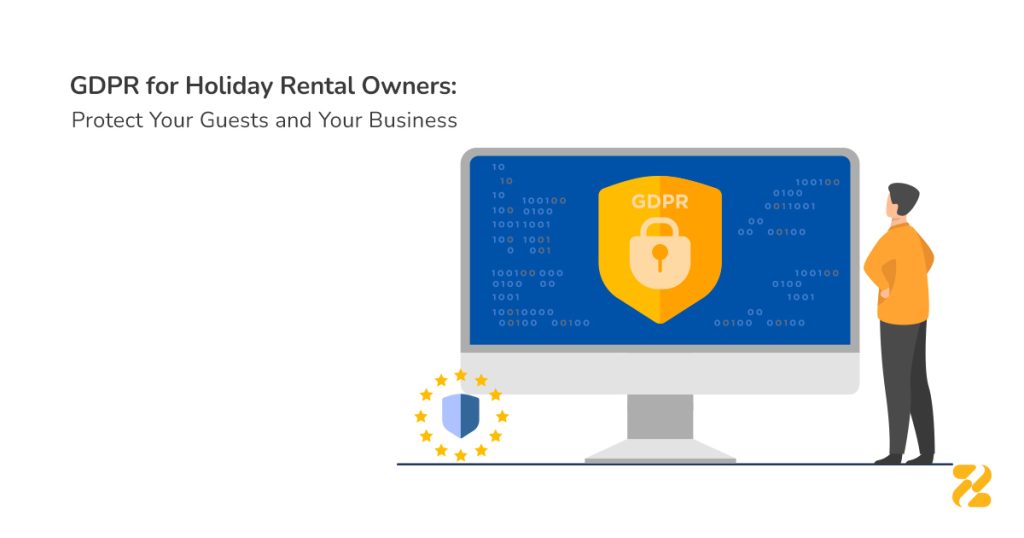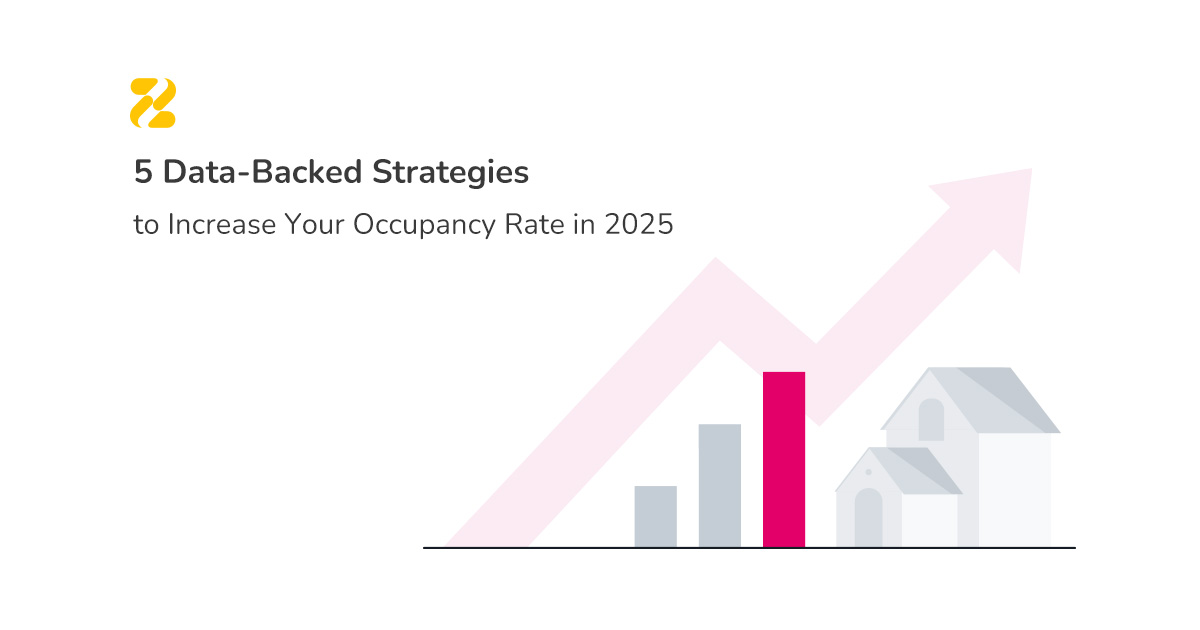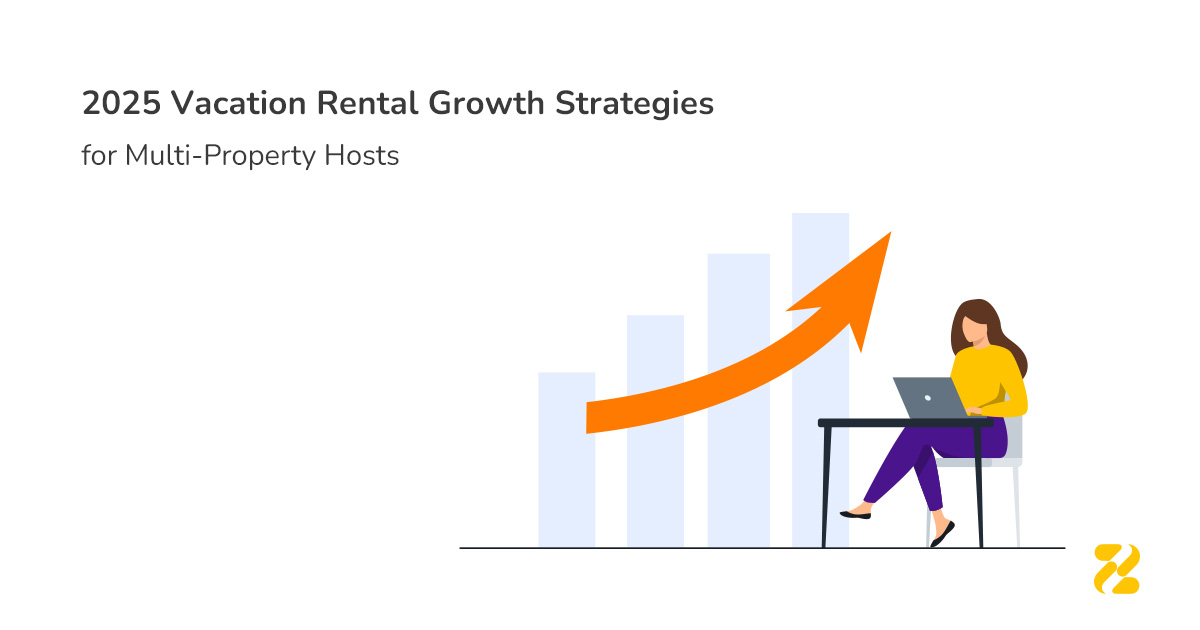As a holiday rental owner, it is imperative to be aware of GDPR in the dynamic realm of data protection. This article serves as a guidance on how to maintain both guest privacy and property management credibility. Plus, we’ve provided a GDPR holiday rental owner checklist, making it easy for you to follow data protection regulations.
Table of Contents
What Is the General Data Protection Regulation (GDPR)?
The GDPR, which kicked in on May 25, 2018, in the European Union, is like the superhero of data privacy and security rules. It swooped in to replace the old Data Protection Directive 95/46/EC, with a mission to sync up data protection laws across all the EU countries.
Its influence has transcended borders, leaving a lasting impact on global data protection practices and legislation. Numerous companies, especially those managing the personal data of EU citizens, have undergone procedural adaptations to ensure compliance with this regulation.
The GDPR places several responsibilities on organisations, including:
- Appointing a data protection officer (There are specific circumstances outlined in Article 37 of the GDPR where the appointment of a DPO is required.)
- Enforcing suitable technical and organisational measures to safeguard personal data
- Notifying relevant authorities about data breaches
- Carrying out data protection impact assessments for activities involving high risks of processing
Does GDPR Concern Holiday Rental Owners?
Yes. Regardless of the organisation’s location, any institution managing the data of individuals within the EU is subject to the GDPR. This suggests that companies that operate outside of the EU might have to abide by GDPR if they offer services to EU citizens.
As someone who runs a vacation rental, you usually gather diverse personal information from guests, such as:
- Names and contact details: Emails, phone numbers, addresses.
- Identification documents: Passport copies and driver’s licences (needed for guest vetting).
- Payment information: Credit card details and bank account numbers (used for bookings and security deposits).
All this information comes under the GDPR umbrella.
GDPR Holiday Rental Owner Checklist
As a responsible holiday rental owner, staying GDPR-compliant not only protects your guests’ privacy but also reinforces your commitment to ethical business practices. The following GDPR holiday rental checklist outlines specific tasks and considerations that vacation rental owners should follow.
1. Obtain Clear Consent from Guests
It’s not always necessary to obtain explicit consent from guests under GDPR. But, it’s often the most straightforward way to demonstrate compliance and build trust.
Always consider the purpose of data processing and choose the appropriate legal basis. For example, you need their consent when using personal data for marketing activities or sharing it with third parties.
If you’re unsure about whether consent is needed, seek professional legal advice.
2. Implement Secure Data Storage and Transmission Practices
To prevent unauthorised access, disclosure, change, or destruction of guest data, security measures must be implemented.
There may be detrimental effects if security measures are not put in place. Significant fines for violating the GDPR could reach up to €20 million or 4% of your yearly global turnover. Data breaches can also harm your company’s reputation and cause the loss of guest trust.
3. Establish and Communicate Your Vacation Rental Privacy Policy
Outline your data practices in easy-to-understand language, explaining what data you collect, why, and for how long.
Publish your policy on your website, booking platforms, and confirmation emails. Offer a short, readily visible summary of key points for quick understanding.
4. Train Staff on GDPR Compliance and Data Protection Measures
For any business handling personal data, investing in GDPR compliance training is imperative. Give your employees the information and abilities they need to manage data safely and ethically. By doing this, you may shield your business from the dangers of non-compliance and data breaches.
5. Consistently Update Consent Forms and Privacy Policies
Recall that updating current permission forms and privacy policies is not simply required by law, but should be done frequently. It demonstrates your regard for your guest’s privacy and data.
6. Have a Plan for Handling Data Access Requests and Data Breaches
One of the most important aspects of GDPR for holiday rental owners is creating a thorough plan for handling requests for access to personal data and data breaches. Having a procedure like this enables companies to be ready to deal with these circumstances in a timely and compliant manner.
7. Ensure Your Third-Party Vendors Comply with GDPR
When organisations engage external service providers, they often share or entrust them with access to personal data.
Businesses must be proactive in verifying and overseeing the GDPR compliance of their third-party partners to protect individuals’ privacy rights and adhere to the regulations.
8. Stay Informed
Observe any modifications or clarifications about GDPR. Here are some resources to keep bookmarked for GDPR.
- GDPR compliance guidelines on the GDPR.EU website
- The official GDPR website
- The European Commission’s website on GDPR
- The ICO’s website on GDPR
Image by pch.vector on Freepik.




